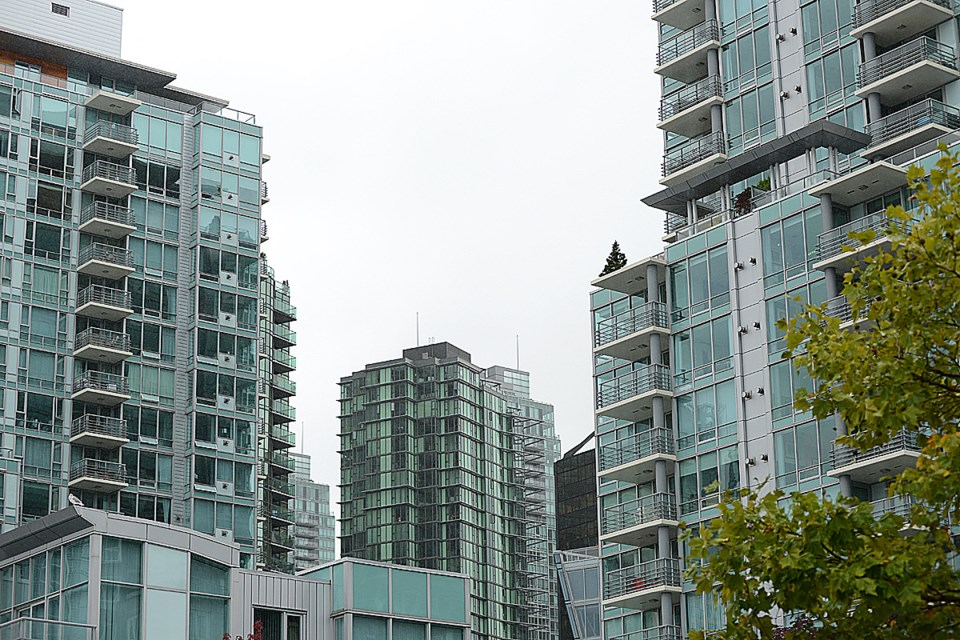Short-term speculation in Canada’s hottest condo markets has never been a major factor pushing up prices, and measures to curb speculation won’t help with affordability, according to a new report by Bloomberg.
Bloomberg’s study of Teranet’s land and housing registry found that only 3.4 per cent of Vancouver condos sold between April and June this year had been sold within the previous year. This is known as “paired sales,” when the same unit is sold twice in quick succession, which is a way to measure speculation.
Over the past 12 months, the market share of paired sales was 2.9 per cent, which has declined considerably from six per cent 10 years ago, just before the 2008 financial crisis.
The Bloomberg report said, “The paired sales rate did spike in Vancouver’s condo market in March 2016, when about 5 per cent of transactions were resales made within one year. Prices in the city were rising an average of 5 per cent per month at the time, prompting the province to crack down by introducing a 15 per cent tax on foreign buyers.”
However, it added, “Looking at full-year data, the share of flipped condos never exceeded 5 per cent in the past decade. That suggests few people were looking to make a quick buck in a city where prices almost doubled in 10 years.”
For detached houses and townhomes, over the past five years, paired sales averaged 2.8 per cent of the housing market. They exceeded four per cent only in winter 2016 and summer 2017, said Bloomberg.
“Condo flipping was never pervasive in the Vancouver and Toronto housing booms and that sliver of the market has faded over time, suggesting tougher measures to curb speculators won’t make those cities more affordable,” concluded the report authors.
They added, “It’s more likely that fundamentals such as weak growth in housing supply and rising populations that create new demand caused Vancouver’s rapid price gains, not speculators.”
The business news network quoted Vancouver realtor Steve Saretsky as saying the current housing slowdown is a key reason why speculators are becoming reluctant to flip condos. “As soon as [prices] stop rising, you get into a number of issues,” Saretsky told Bloomberg. “Are you really going to try to flip it in a down market? There’s no profit to be made.”



